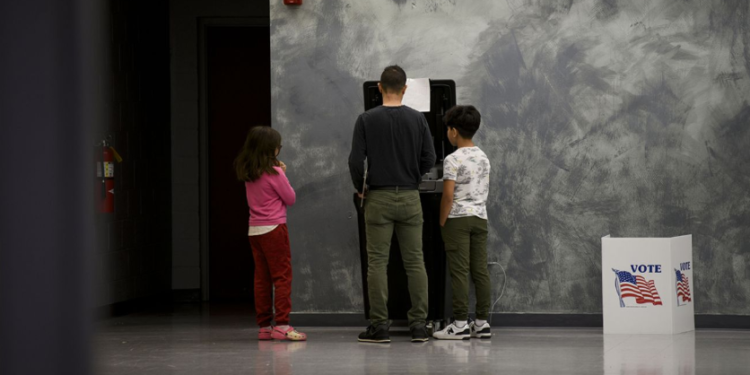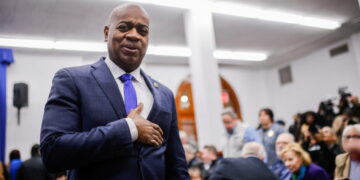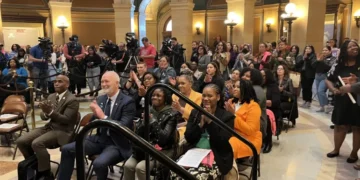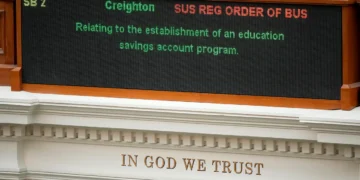Dec 4, 2024 Story by: Editor
A set of bills aimed at enhancing voting accessibility for non-English speakers and individuals with disabilities is advancing toward becoming Michigan state law. On Tuesday, the House elections committee, in a party-line vote, approved four bills comprising the proposed Michigan Voting Rights Act (MVRA). The legislation, championed by Democrats and Secretary of State Jocelyn Benson, will now proceed to the House floor for a vote. These bills were previously approved by the Senate in September following nearly a year of committee deliberations.
The MVRA seeks to broaden voting access by offering ballots in more languages, establishing a voting data clearinghouse, ensuring assistance for voters requiring help, and preventing voter suppression. If enacted, the legislation would mark another significant shift in Michigan’s election laws, which have recently expanded voting rights through measures like same-day registration and early in-person voting.
Funding and Concerns from Clerks
One major challenge for the legislation has been funding. Deputy Secretary of State Aghogho Edevbie indicated that amendments place most of the estimated $15 million cost on the Department of State rather than local governments. Despite this adjustment, concerns persist. Local clerks and opponents worry the legislation could impose undue burdens on municipalities, particularly given the weakened federal Voting Rights Act.
Chris Swope, Lansing City Clerk, voiced reservations, stating, “If you had told me a year ago that I would ever testify in opposition to anything called a voting rights bill, I would have laughed in your face.” Swope emphasized concerns over penalties for noncompliance due to human error rather than deliberate suppression efforts.
Key Provisions and Controversies
The proposed MVRA expands support for multiple languages, potentially including Arabic, which is not currently covered under federal law. Detroit may need to provide translations in over six languages, while smaller communities like Coldwater would require at least three, according to Delta Township Clerk Mary Clark. Initial high-cost estimates were addressed by reducing the number of documents requiring translation.
Other provisions include legalizing curbside voting and allowing voters to receive food or assistance at polling places. However, Oakland County Clerk Lisa Brown criticized the curbside voting mandate, highlighting logistical and staffing challenges.
The legislation also introduces “preclearance” measures, enabling voters to sue municipalities over accessibility issues, potentially requiring courts to redraw districts or change polling sites. Swope raised concerns about these provisions potentially leading to conflicts with state laws, such as those prohibiting ranked-choice voting.
Support and Legislative Outlook
Secretary of State Benson and advocacy groups, including the ACLU of Michigan and Detroit Disability Power, strongly support the MVRA. Benson highlighted Michigan’s progress in election rankings, noting, “What the Michigan Voting Rights Act really is about is making sure that constitutional right is real.”
With Democrats holding the majority until the year’s end, they are prioritizing voting rights legislation during this lame-duck session. However, challenges remain, including opposition from local clerks and the logistical demands of implementation. Governor Gretchen Whitmer has not yet commented on the MVRA but has supported other voting rights expansions.
In parallel, Whitmer signed bills prohibiting firearms at polling sites and efforts to join the national popular vote compact are underway. Signature verification laws are also being debated to address past issues with faulty petitions.
The legislative session is scheduled to conclude on December 19, leaving limited time for further action. Source: Bridge Michigan
















